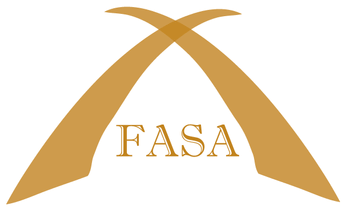Boosting Financial Well Being for Educators, One District at a Time
By Fred Makonnen, Head of Sales & Distribution – Equitable Group Retirement
Across the United States, school districts are managing tight budgets, talent shortages, and growing pressure to do more with less. On top of that, the employee benefits landscape is constantly shifting. From pension changes to rising healthcare costs, the layers of complexity continue to grow. Meanwhile, many educators still feel stuck when it comes to day-to-day money decisions—everything from student-loan management to retirement readiness. And it’s a disconnect district’s can’t afford to ignore.
The data speaks for itself. According to a 2023 PwC Financial Wellness study, 60% of full-time employees across industries cite finances as their top source of stress, and more than half admit they spend three or more hours during the workweek worrying about money. On top of that, the average U.S. adult answers barely 48 % of financial-literacy questions correctly—a figure that hasn’t budged in years, based on data from the TIAA Institute-GFLEC Personal Finance Index.
For districts, that stress shows up as distraction, absenteeism, and high turnover. A district-led financial-literacy strategy isn’t just a perk; it’s a retention plan.
5 Practical Moves Districts Can Make
- Demystify the Benefits Already Offered
Host short, life-stage-based workshops (new-hire budgeting, mid-career debt balancing, pre-retirement catch-up strategies). Keep them vendor-neutral and story-driven. - Lean on Partnerships—Inside and Out
Pair HR and union reps with local credit unions, university extension programs, or nonprofit coalitions that provide free curriculum and speakers. - Make It a Year-Round Conversation
A single “lunch-and-learn” won’t cut it. Think monthly micro-tips in staff newsletters, pop-up Q&A booths during PD days, or a standing “Money Minute” in faculty meetings. - Track What Moves the Needle
Simple metrics—session attendance, 403(b)/457(b) participation, pulse-survey confidence scores—help you tweak content and prove ROI to leadership. - Include Every Employee Group
Bus drivers, cafeteria teams, and paraprofessionals often miss out on benefit briefings. Offer multiple formats (virtual, in-person, bilingual) so everyone can plug in.
State Spotlights: Recent Examples of Turning Policy into District Action
|
|
What’s Happening |
How Districts Can Tap In |
|
Illinois |
School boards may create a Financial Literacy Fund to receive public or private dollars for staff training, contests, and classroom materials. |
Apply for mini-grants or corporate donations and earmark the fund for employee-only workshops or stipend-supported teacher certifications. |
|
Arizona |
SB 1058 would require a half-credit personal-finance course to graduate. AZ also offers an optional State Seal of Personal finance for students who complete the coursework and pass an assessment. |
Start a voluntary half-credit finance pilot before the bill is enacted. Train teachers to deliver the curriculum and invite other staff. Partner with nonprofits for educator focused financial workshops to complement student-centered efforts. |
|
California |
A 2024 law mandates a semester-long personal-finance course by 2027-28 and enforces as a graduation requirement for the class of 2030-31. Implementation grants will pay schools stipends while the rules are being finalized. |
Apply early for grants to cover course start-up and teacher training. Record or stream personal development sessions so any employee can benefit, turning state money into a district-wide financial wellness program. |
|
Idaho |
Beginning July 2023, every high-school student must complete economics with embedded financial-literacy components. |
Repurpose student course materials – e.g., IDLA’s online personal-finance course as on-demand modules for staff during summer break or in-service days. |
Tip: Even if your state isn’t on this list, similar bills are moving nationwide. Check your Department of Education website for pilot grants, credentialing incentives, or curriculum hubs you can tap for staff programming.
Districts Already Making It Work
- Micro-sessions in Maine: One rural district tacks ten-minute money “sprints” onto weekly faculty meetings—attendance jumped when they added coffee gift cards for pop-quiz winners.
- Virtual office hours in Texas: A mid-size district negotiated four hours a month of pro-bono financial-coach time from its 403(b) provider—booked solid within a week.
- Peer-to-peer Slack channel in Oregon: Teachers share budgeting apps, meal-prep tips, and side-hustle cautionary tales. HR lurks (politely) to spot trending questions for the next workshop.
Where To Go From Here
Financial literacy isn’t merely a program; it’s an investment that can reshape district culture. When school leaders champion financial education, employees feel valued, stress is reduced, and retention improves. Whether you leverage a new mandate or simply carve out 30 minutes for a “Budget Basics” webinar, each step turns today’s paycheck anxiety into tomorrow’s payoff.
Ready to get started? Pull one idea from the list above, pilot it next month, measure what happens, and build from there. The payoff will show up in happier employees and healthier budgets. And remember, you don’t have to build the program alone – reach out to trusted resources for guidance along the way.
 Fred Makonnen is Head of Group Retirement Sales & Distribution at Equitable, where he oversees its 401(k), 403(b) and 457(b) businesses. This educational article does not offer or constitute – and should not be relied upon as -- financial, investment, tax, or legal advice. Please consult your own financial, legal, and tax professionals accordingly.
Fred Makonnen is Head of Group Retirement Sales & Distribution at Equitable, where he oversees its 401(k), 403(b) and 457(b) businesses. This educational article does not offer or constitute – and should not be relied upon as -- financial, investment, tax, or legal advice. Please consult your own financial, legal, and tax professionals accordingly.
Equitable is the brand name of Equitable Holdings, Inc. and its family of companies, including Equitable Financial Life Insurance Company (NY, NY) and Equitable Financial Life Insurance Company of America, an Arizona stock company with an administrative office located in Charlotte, NC, issuers of life insurance and annuities, and Equitable Distributors, LLC.
GE- 8209041.1 (7/25)(Exp. 7/29)
